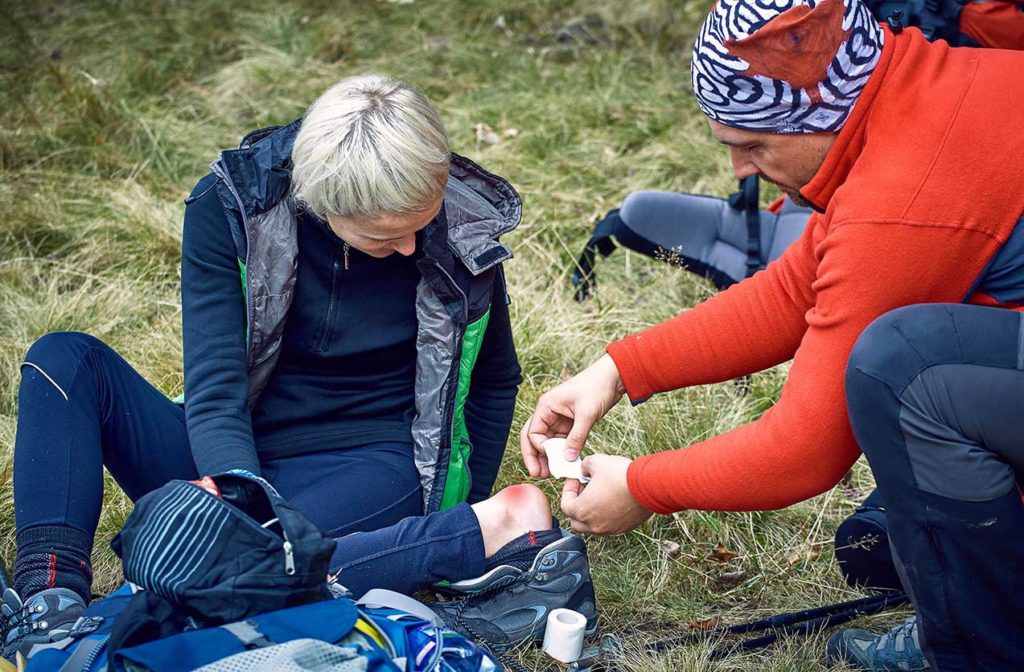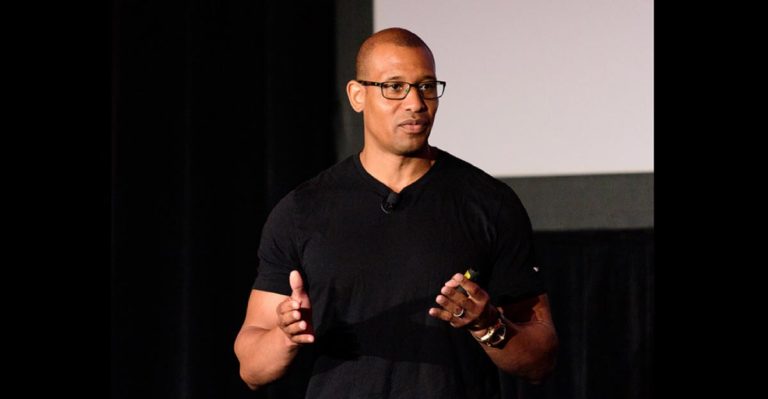These Three Basic Principles Will Help You Accomplish Anything
The summit of Mount Everest is the highest point on Earth at 29,029 feet. Just the thought of traversing the terrain to the top seems impossible. If you were faced with the challenge to scale Mount Everest, would you muster up the courage to conquer your fears or shy away assuming the end goal was unattainable?
Facing your Mountain

Do any of these sound familar?
- Bouncing back from losing a job
- Taking on a project which requires a new skill
- Dealing with office politics
- Working with a disgruntled employee
We have all dealt with a Mount Everest at one point in our lives and depending on the complexity of the terrain, it could take days, weeks, months, or even years to achieve the goal.
When faced with an unfamiliar challenge it can be easy to give up. However, by putting the three basic principles below into practice, you will start to build confidence in your ability to accomplish anything.
#1: Select the Right Type of Goal

“Setting goals is the first step in turning the invisible into the visible.”
Tony Robbins
Not all goals are equal. When defining a goal, you have to ensure it is achievable. Lets look at a few examples:
- Unrealistic Goal: This type of goal is set for failure right from the start. For example, let’s say I aim to save $1,000 by the end of the year, but I’m only able to put away $50 a month. As you can see, this goal is unachievable. If you have goals in this category, take time to self-reflect and re-evaluate.
- Stretch Goal: This type of goal has a 50/50 chance of failure. Use this goal type as a learning experience to understand your limits to help achieve incremental growth. For example, in the next two years, I would like to be VP of Engineering for my organization. While I might not accomplish this goal within the time frame specified, I would have learned from the journey to define a more realistic goal for the future.
- Realistic Goal: This type of goal is a confidence booster. If you understand the scope of what you are trying to achieve, within a reasonable time frame, have the right skill set and are diligent, you will be successful.
Case in Point
I had a vision to start a foundation to help those in need. I had some experience in the space, but really had no clue where to begin. I mapped out a plan, set incremental goals, and monitored my progress. Two years later, Elevate Foundation was born. My vision had become a reality motivating me to stretch myself further.
#2: Never be Afraid to ask for Help

“Ask for help, not because you’re weak, but because you want to remain strong.”
Les Brown
I would rarely ask for help in fear of being perceived as weak. I realized overtime, by leveraging others for answers, I didn’t need to be the smartest person in the room.
Here are a few things I consistently practice:
- Build your network: It is important to establish relationships with people in your industry. Not only can this be used as a means of creating opportunities, your network can also help you remove roadblocks (it’s good to have connections).
- Find a mentor or coach: Surround yourself with people you look up to or want to emulate. If you are lacking a skill or need advice, having a pro to help can be handy.
- Be Curious: How many times have you been in a meeting and someone rattles off an acronym and you have no clue what it means? Instead of being the person that continuously nods their heads in agreement, “ask”the question “what does that mean?”. I bet there will be several other people in the room “thinking” the same thing.
Case in Point
At the beginning of 2017, I set a goal to expand the Carlsbad WalmartLabs presence by moving into a new location. I was told the only way this would happen was to get approval by Doug McMillon CEO of Walmart. I didn’t know Doug personally, but I built relationships with people that did. By working with real estate, business strategy, finance, HR, and recruiting, I was able to define a location strategy for Carlsbad which was presented to Doug. A year later, the location expansion was approved. We will now be growing our location 3x what it is today!
#3: Learn from your Failures

“Never give up. Today is hard, tomorrow will be worse, but the day after tomorrow will be sunshine.”
Jack Ma
Failure is always a possibility and when it happens we should take the opportunity to learn from it. If you are uncomfortable with failure, try these three techniques:
- Get Perspective: Find someone you look up to and ask them how many times they’ve failed before they achieved their goals
- Self-Reflect: Think about what could have been improved and use that as motivation on the next go around
- Go Easy on Yourself: If you don’t achieve your goal, it is not the end of the world. Dust yourself off and try again.
Case in Point
In 2011, I started a company called ProjectFullCircle. The goal of the company was to create an online community that unified nonprofits, donors, volunteers, sponsors, and those with a need. Being inexperienced in running a company, things ended in failure survived only by the company Facebookpage. However, I was able to learn from my mistakes and as a result of my passion, Elevate Foundation was born.
Go Conquer your Mountain

Everyone has a mountain in their life. Whether big, medium, or small, the end goal is the same… that feeling of accomplishment. When setting out to conquer your Mount Everest, remember these best practices:
- Ensure you are setting realistic goals. Without a sense of success, you won’t be motived to continue challenging yourself
- If you don’t understand something ask for clarification. Not only will youlearn something, but you can teach others in the process
- Use failures as a launching pad towards success. The best way to learn is to try, try, again.
What is your next goal? Write it down, share it with a friend, and put these principles into practice. Before you know it, you will be conquering your own Mount Everest with ease.







